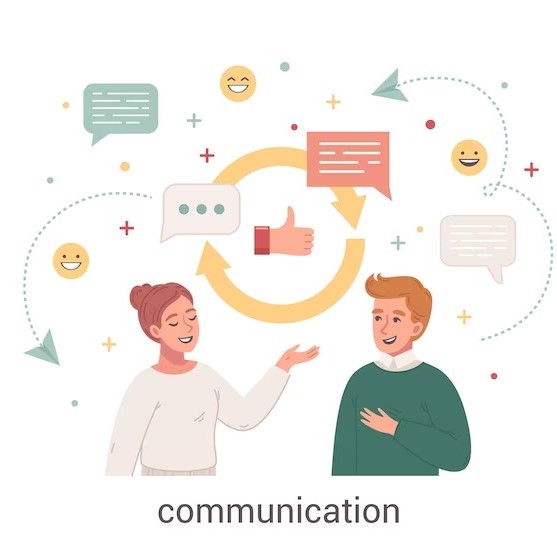How to Manage Expectations and Avoid Disappointment
Secrets to Successfully Managing Expectations
Managing expectations can be a challenging task in any scenario, but it is particularly important when it comes to business. Whether you are dealing with a client, a customer, or an employee, setting and meeting expectations can make all the difference in building strong relationships and achieving success. There are several key secrets to successfully managing expectations, including clear communication, setting realistic goals, and following through on promises.
One of the most important aspects of managing expectations is maintaining clear communication throughout the process. This means being transparent about what you can and cannot deliver, as well as keeping stakeholders informed about progress along the way. By doing so, you can avoid misunderstandings and surprises that can damage relationships and erode trust. Additionally, setting realistic goals is critical to success. While it may be tempting to promise the world to win a new client or customer, setting expectations too high can eventually lead to disappointment and frustration. Instead, focus on achievable goals that can be met consistently over time.
At the end of the day, following through on promises is perhaps the most important component of managing expectations. If you say you will deliver something, make sure you do so in a timely manner and to the best of your ability. This sends a clear message to stakeholders that you are reliable and trustworthy, and that you take their needs and expectations seriously. By keeping lines of communication open, setting realistic goals, and following through on promises, you can successfully manage expectations in any situation and build strong, lasting relationships along the way.
Benefits of Managing Expectations Properly
Managing expectations is an essential aspect of the business world. Failure to do so can lead to disappointment, frustration, and ultimately loss of trust between clients and businesses. When expectations are managed properly, it can lead to better outcomes for both parties. For clients, it ensures that they receive exactly what they want, and for businesses, it ensures that they meet their client's needs while staying within budget and time constraints.
Properly managing expectations can also lead to an increase in customer loyalty. When clients trust that businesses will deliver on their promises, they are more likely to return for future services and products. This can result in an increase in revenue for businesses through repeat customers and positive word-of-mouth referrals. Additionally, managing expectations from the beginning can help to avoid misunderstandings and conflicts that can arise later in the business relationship.
Effective communication is key to managing expectations properly. This includes being transparent and honest about what can and cannot be done within a given timeframe or budget. It is also essential to provide regular updates on the progress of a project, as this can help to prevent any surprises or disappointments. By managing expectations effectively, businesses can build trust and long-lasting relationships with their clients, ultimately leading to success.
Consequences of Not Managing Expectations
Not managing expectations in personal or professional relationships can have serious consequences. Misunderstandings often arise when expectations are not clearly communicated or when one party expects something that the other cannot or is not willing to deliver. This can lead to disappointment, frustration, and resentment, ultimately damaging the relationship. For example, if a colleague expects you to complete a task within a certain timeframe, but you are not aware of the deadline, or are unable to complete the task for any reason, they may become frustrated and lose faith in your ability to work together. Similarly, if a spouse expects their partner to spend more time with them but does not communicate this effectively, they may feel neglected and unappreciated, leading to tension in the relationship.
Another consequence of not managing expectations is unrealistic or unreasonable expectations. When we expect too much from ourselves or others, we set ourselves up for disappointment and failure. For example, if a manager expects an employee to complete a project in half the time it would normally take, they are setting an unrealistic expectation that is unlikely to be met. This can lead to frustration on both sides and damage the relationship between the manager and employee. Similarly, if we expect our partners to be perfect and never make mistakes, we are setting an unreasonable expectation that can lead to disappointment and strain on the relationship.
Finally, not managing expectations can also result in missed opportunities. When we do not clearly communicate our expectations or goals, we may miss out on opportunities to achieve them or work towards them effectively. For example, if a team member has a goal of being promoted within the company, but does not communicate this to their manager, they may miss out on opportunities to take on additional responsibilities or be considered for promotion. Similarly, if we do not communicate our expectations to our partners, we may miss out on opportunities to strengthen the relationship and deepen our connection.
Clarifying Your Expectations
Clarifying your expectations is essential for effective communication with others. Whether you are working with colleagues, friends, or family members, it is important to be clear about what you expect from them. This helps to avoid misunderstandings and ensures that everyone is on the same page. When you are clear about your expectations, you can work together more efficiently and get better results. Be specific when communicating your expectations and provide as much detail as possible. This will help others to better understand what you are looking for and how they can support you.
Misunderstandings often arise when expectations are left unspoken. This can lead to frustration, conflict, and even broken relationships. To prevent this, it is important to articulate your expectations clearly and listen to the expectations of others. When you are aware of each other's expectations, you can work together to find solutions that are mutually beneficial. Expectations can be related to work deadlines, quality standards, communication methods, and many other areas. Taking the time to discuss and clarify expectations can save a lot of time and energy in the long run.
Effective communication requires clarity and openness. When you are clear about your expectations, you are more likely to get what you want and avoid misunderstandings. However, it is also important to be open to feedback and willing to adjust your expectations if necessary. Flexibility and adaptability are key to successful relationships, both in the workplace and in your personal life. By clarifying your expectations and listening to others, you can build more meaningful and productive connections with the people around you.
Guidelines for Managing Expectations
The first step in managing expectations is to establish clear goals and timelines. This involves outlining what you are trying to accomplish, breaking it down into smaller steps, and setting deadlines for each. It is important to share these goals and timelines with others involved in the project or task so that everyone is on the same page. This helps to avoid misunderstandings and delays caused by differences in expectations.
Communication is key in managing expectations. You should keep everyone involved in the project informed of progress, changes, and any potential issues. This involves both listening to others and providing updates on your own progress. Encourage open and honest communication, and be willing to adjust your goals and timelines as needed. Remember that managing expectations is a collaborative process and requires input and feedback from everyone involved.
Finally, it is important to manage emotions and be realistic about what can be accomplished. Often, people may have high expectations for what can be achieved in a given amount of time or with a certain budget. It is important to address these expectations early on, rather than letting them build up and causing frustration or disappointment later. By being realistic about what can be accomplished, and by focusing on progress rather than perfection, you can help create a more positive and productive work environment.
How to Avoid Unnecessary Disappointment
Disappointment can be a powerful emotion that can impact our mood, relationships, and overall well-being. To avoid unnecessary disappointment, it's important to set realistic expectations for yourself and others. This means being honest with yourself about what you can and cannot accomplish, and communicating clearly with others about what you expect from them. By setting realistic expectations, you can avoid the disappointment that comes from expecting too much from yourself or others.
Another way to avoid unnecessary disappointment is to develop a positive outlook and practice gratitude. When we focus on the good things in our lives and appreciate what we do have, we are less likely to be disappointed when things don't go as planned. This doesn't mean ignoring our problems or pretending that everything is fine when it's not, but rather, it means acknowledging our challenges while also recognizing the positive aspects of our lives. By cultivating a positive mindset, we can learn to accept disappointment as a natural part of life and move on from it more quickly and easily.
Finally, it's important to be flexible and adaptable in the face of disappointment. Life is full of unexpected twists and turns, and things don't always go according to plan. When we are too rigid in our expectations or too attached to specific outcomes, we set ourselves up for disappointment. Instead, try to be open to different possibilities and willing to adjust your expectations as circumstances change. This doesn't mean giving up on your goals or dreams, but rather, it means being willing to take a different path to get there. By embracing flexibility and adaptability, you can avoid unnecessary disappointment and navigate life's challenges with greater ease.
Building Reasonable Expectations
Building reasonable expectations is a crucial part of achieving success in any aspect of life. It is important to set goals that are realistic and achievable based on our abilities, circumstances, and timelines. Having unrealistic expectations can lead to disappointment, frustration, and even failure. It is important to be honest with ourselves about what we can realistically achieve, and to set specific, measurable goals that align with our values and priorities.
One of the keys to building reasonable expectations is to focus on the process, rather than just the outcome. Rather than being solely focused on achieving a particular goal, we should also pay attention to the steps we need to take in order to reach that goal. By breaking down our goals into actionable steps, we can create a roadmap for success that is both realistic and achievable. It is also important to be flexible and willing to adjust our expectations as we go along, as our circumstances and abilities may change over time.
Another key to building reasonable expectations is to take the time to reflect on our past experiences and accomplishments. By looking back at what we have achieved in the past, we can gain insight into our strengths and weaknesses, and use this knowledge to set realistic expectations for the future. It is important not to get too caught up in comparing ourselves to others or setting unrealistically high standards. Instead, we should focus on our own progress and growth, and set goals that are challenging yet achievable. With the right mindset and approach, we can build reasonable expectations that will help us achieve success in any aspect of life.
Communicating Expectations Properly
Communicating expectations properly is essential in any relationship, whether it’s personal or professional. Expectations are what creates a framework for any type of interaction, and when these expectations are not properly outlined and understood, it can lead to disappointment, frustration, and even damage to the relationship. It’s important to be clear and honest when discussing expectations, as well as actively listening and being receptive to the other person’s needs and desires. This can create a collaborative environment that fosters mutual respect and understanding.
There are many different ways to properly communicate expectations. One effective method is to approach the conversation with a positive and open attitude. By expressing what you hope to achieve or experience in a constructive way, it can make the other person feel more comfortable and willing to engage in the conversation. Additionally, it’s important to be specific about your expectations and to also encourage the other person to be specific about theirs. This can help ensure that both parties are on the same page and have a thorough understanding of what is being asked.
Finally, it’s crucial to be flexible and open to compromise when discussing expectations. While it’s important to be clear about what you want and need, it’s also important to recognize that the other person may have their own set of expectations and limitations. Being willing to adapt and find a middle ground is key in maintaining a healthy relationship, as it allows for room to grow and change over time. By communicating expectations properly and taking a collaborative approach, we can build strong and fulfilling relationships in all areas of our lives.
Creating Processes for Meeting Expectations
Creating processes for meeting expectations is essential for maintaining a high level of performance and ensuring that goals are met. The first step in this process is to clearly define what is expected. This can be done through the creation of performance metrics, which can be used to measure progress and identify areas for improvement. Additionally, it is important to establish accountability by assigning specific tasks or responsibilities to individual team members.
Another key component of creating processes for meeting expectations is communication. This involves not only ensuring that team members are aware of their roles and responsibilities, but also providing regular feedback and support to help them achieve their goals. Regular team meetings can also help to ensure that everyone is on the same page and that any issues or concerns can be addressed in a timely manner.
Finally, it is important to regularly evaluate the effectiveness of the processes that have been established. This can be done through the use of performance metrics, surveys or other feedback mechanisms. Based on this evaluation, adjustments can be made to ensure that the processes remain effective and that expectations continue to be met. By working to create and maintain effective processes, teams can achieve a higher level of performance, meet their goals and provide better service to their customers.
Establishing Accountability
Establishing accountability is crucial to achieving individual and organizational success. Accountability involves taking responsibility for one's actions and decisions, and being willing to be held accountable for the outcomes. In a professional setting, accountability translates into meeting deadlines, fulfilling obligations, making ethical decisions, and communicating effectively. When individuals and organizations foster a culture of accountability, they exhibit a high level of integrity and commitment to excellence. This, in turn, enhances trust, productivity, and performance in the workplace.
Establishing accountability is not easy, and requires a concerted effort from leaders, managers, and employees. It involves defining clear expectations, setting measurable goals, providing feedback, and promoting a sense of ownership. Leaders must communicate their expectations clearly, and provide adequate resources and training to help employees achieve the desired outcomes. Managers must monitor progress regularly, provide timely feedback, and address any performance issues immediately. Employees must take initiative, be proactive, and seek feedback and guidance when necessary. Moreover, all stakeholders must demonstrate a willingness to embrace change, learn from mistakes, and continuously improve.
In conclusion, establishing accountability is essential to creating a high-performing, ethical, and sustainable organization. It requires a shared commitment from all stakeholders, and involves setting clear expectations, providing feedback, and promoting a sense of ownership. By fostering a culture of accountability, organizations can enhance trust, productivity, and performance, and achieve their strategic objectives. However, establishing accountability is an ongoing process, and requires a continuous effort to adapt to the changing needs of the organization and its stakeholders.
Avoiding Unrealistic Expectations
Avoiding unrealistic expectations is crucial for maintaining healthy relationships and achieving personal goals. Many people fall into the trap of setting unrealistic expectations for themselves or others, which can lead to disappointment, resentment, and failure. To avoid this, it is important to be realistic in your goals and expectations, considering your personal abilities and the circumstances you are in. Communicating with others about your expectations and understanding their perspectives can also help in minimizing misunderstandings and conflicts.
Another way to avoid unrealistic expectations is to focus on progress rather than perfection. It is natural to strive for perfection, but this often leads to disappointment and frustration. Instead, focusing on progress and celebrating small achievements can help build motivation and self-esteem. It is also important to be flexible and open to change, as unexpected events and obstacles can arise and alter your plans.
In addition to personal and social benefits, avoiding unrealistic expectations can also lead to improved mental health. Holding onto unrealistic expectations can lead to anxiety, stress, and depression, as individuals become fixated on their failure to meet them. By setting realistic expectations, you can reduce stress and improve your overall sense of well-being. Learning to accept and appreciate the efforts you put in, rather than focusing solely on the outcomes, can help foster a positive attitude and a healthier mindset.
Strategies to Acknowledge Disappointment
Disappointment is a natural human emotion and can be caused by various situations like a job rejection, a broken relationship, or even not achieving a personal goal. When we experience disappointment, we feel a range of emotions like sadness, anger, frustration, and resentment. However, it is important to acknowledge and process these emotions, so we can move forward. One strategy to do this is to allow ourselves to feel what we feel, without judgement. Accepting our emotions as they are can help us understand ourselves better and gain valuable insights into our thoughts and actions.
Another way to address disappointment is to reframe our perspective. Instead of dwelling on what went wrong, we can focus on what we can learn from the experience. A growth mindset can help us view setbacks as opportunities for personal and professional development. We can ask ourselves questions like, 'What could I have done differently?' or 'What did I gain from this experience?' These questions can help us shift our focus from negativity to positivity, and enable us to develop a sense of resilience.
Lastly, seeking support from family or friends can also be helpful in overcoming disappointment. Opening up and sharing our feelings with people we trust can provide us with a sense of comfort, and help us process our emotions. Moreover, speaking to someone who has experienced a similar situation can help us gain a new perspective and find ways to move forward. It is important to remember that we are not alone in our disappointments and that there is always help and support available.
Adapting Expectations When Necessary
Adapting expectations is a necessary component to success in any venture. One cannot simply set a goal and expect everything to unfold exactly as planned. Unexpected roadblocks and challenges will arise along the way that may necessitate a change in expectations. However, this does not mean that one should abandon their initial goal altogether. Rather, it means that one must be open to adapting and adjusting their expectations in order to remain on track to achieve their desired outcome.
The ability to adapt expectations is rooted in a growth mindset. A growth mindset recognizes that failures and setbacks are opportunities for growth and improvement. It allows individuals to view challenges as opportunities rather than insurmountable obstacles. This mindset also allows individuals to stay focused on their goals through adversity and to make necessary adjustments to their plan in order to achieve success. Adapting expectations is not a sign of weakness, but rather a sign of mental toughness and resilience.
Some key ways to adapt expectations include setting realistic goals, practicing flexibility, and being open to feedback. Setting realistic goals allows individuals to avoid disappointment and frustration when progress doesn't match expectations. Practicing flexibility allows individuals to remain open to new ideas and approaches that can lead to success. Being open to feedback allows individuals to learn from mistakes and continue to refine their expectations as they go. In the end, those who are able to adapt their expectations are more likely to succeed in achieving their goals than those who rigidly stick to their initial plan.



